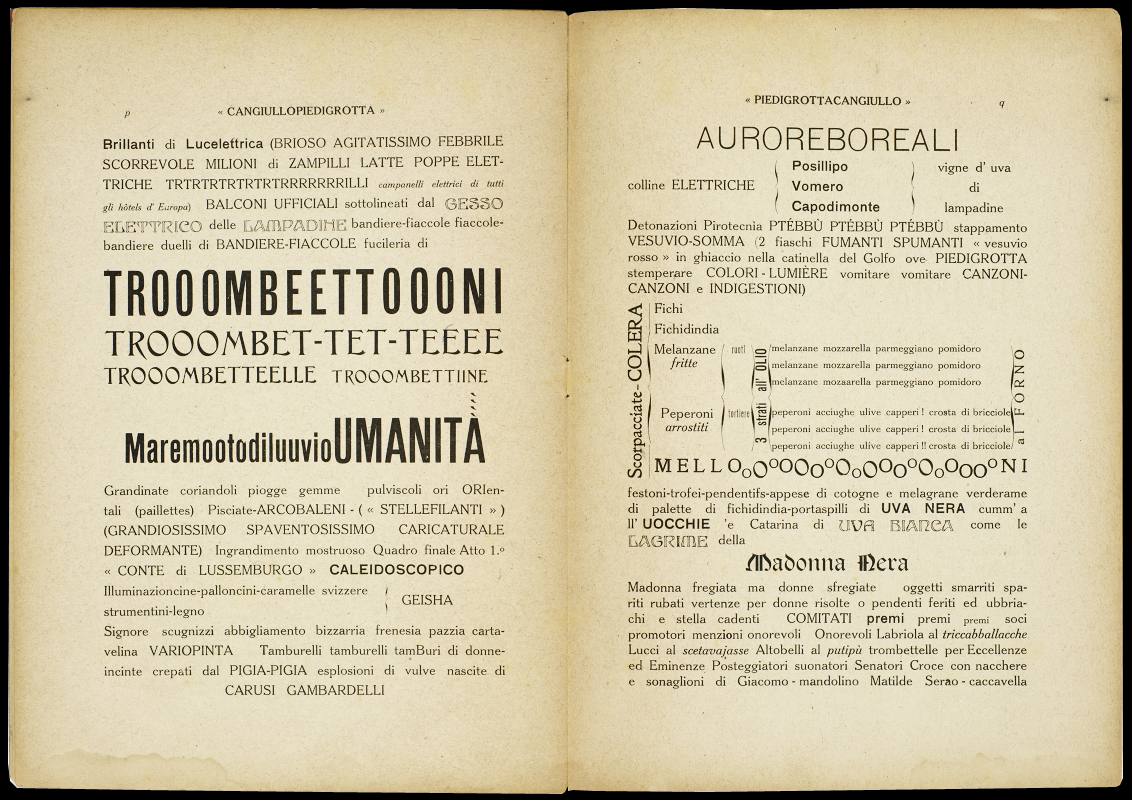 |
|
Book, Piedigrotta by Francesco Cangiullo, 1916 Francesco Cangiullo’s Piedigrotta represents the Italian Futurist plan to animate life through new forms of art and writing. Named for an annual Neapolitan festival, the text flouts traditional poetic devices—expressive typography and illogical analogy substitute for line, meter, and metaphor—to drown out the old in a style drawn from the age of the machine; advertising, print journalism, and wireless broadcast become the chief models of the new poetry. As the foundation of Futurist variety theater, such writing diminished the distance between audience and performer, reader and writer, carrying the delirium of the carnival into everyday life: the bill for the March 1914 performance of Piedigrotta in Rome promised, “WORDS-IN-FREEDOM declaimed . . . with the assistance of . . . very famous dwarf artists,” each named for and wielding an instrument of noise: a seashell, a bundle of tin, a wooden saw, a hammer, an out of tune piano.
|
|
©The Wolfsonian–FIU. All rights reserved.
|